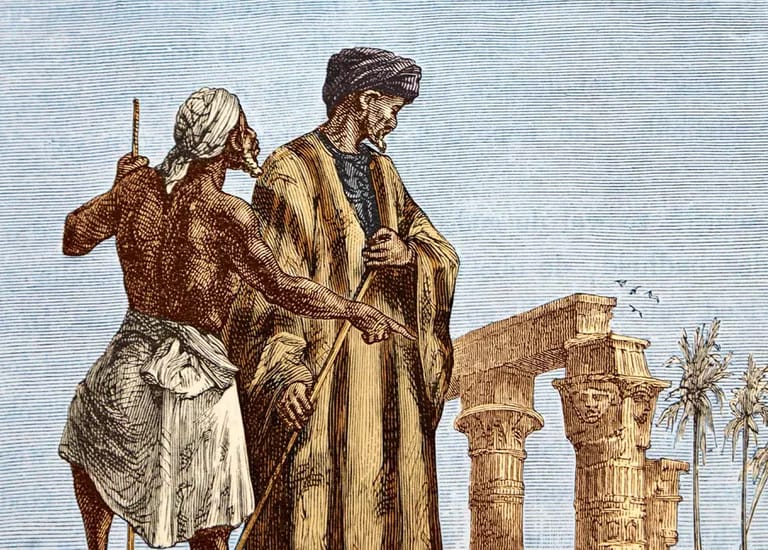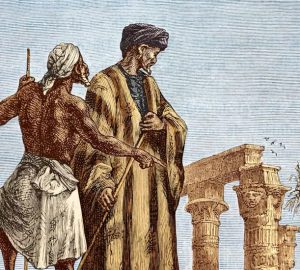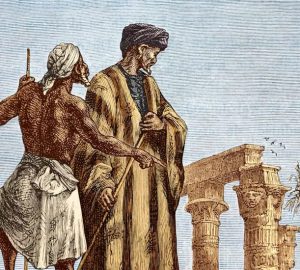Abu Bakar ash-Siddiq was one of the many companions who got a special position in the heart of the Prophet Muhammad. The specialty of Abu Bakr was also recorded in the Qur’an and the Prophet’s treatise. The superiority of the bakran tradesman was not because he was included as-sabiqun al-awwalun, or the first persons to testify to the truth of the events of Isra and Mi`raj.
Not also because of Abu Bakr’s role in spreading Islam which was not only limited to accompanying and protecting the Prophet, more than that, the whole inherent in him was submitted to support and spread the da’wah.
Gus Baha, one of influencial preacher in Indonesia today, mentions the advantages of Abu Bakr as a person who was able to see things with reality. Abu Bakr was regarded as the first person to put down old tradition and solve every problem according to the context.
The manifestation of Abu Bakr’s reality can be listened to through the story of Bilal, and the history of war involving the Prophet Muhammad. In a story told, when the Umaiyah learned that Bilal had embraced Islam, he immediately received torment from his master. In the desert that was exposed to the sparkling sunshine, Bilal’s body was bombarded with whip blisters. His naked body was crushed by a large rock. Bilal did not budge, and continued to reply to the torture by calling, “Ahad … Ahad … Ahad”.
Abu Bakr who knew the incident then came to the scene. In front of Umaiyah and other Quraysh rulers, Abu Bakr asked, “Do you want to kill him because he said that his Allah is God? Or because he disobeyed you, so that you tormented him? If so, I will redeem him”.
With the money in his hands, this Sayyidah Aisha’s father then handed over money to Umaiyah. Without a bid, the price given exceeds the market price. Furthermore, Abu Bakr released the status of Bilal as a slave to become a free human being. That is the form of being realistic, Bilal’s pain cannot be resolved only by prayer or reading hizb.
The next form of being realistic was shown by Abu Bakr every time he prepared for war. He realized that to spread religion requires no small amount of money. As a trader with a high level of business, from Syria to Yemen, Abu Bakar certainly has abundant wealth. The profits earned are saved for the costs of the struggle with the Prophet, including; set the slaves free, against the Quraysh embargo on the Prophet, and even to prepare for major wars which required high costs. Most of these needs came from his personal pocket.
One of the battles that caused Abu Bakr to sacrifice his entire fortune occurred during the Tabuk war. Maulana Muhammad Zakariyya al-Kandahlawi in the book Himpunan Fadhilah Amal, called Tabuk war as a very famous war event. The final battle followed by the Prophet Muhammad began when the Roman King would expand to Tabuk via the Sham line. The war that took place on Thursday, the 5th of the month of Rajab in the year 9 of the Hijri, coincided with the harvest period. At that time, the weather of the Arabian Peninsula was very extreme, not to mention the enemy that would be faced was a large empire.
The Prophet Muhammad himself was quite frightened when he heard the news. He was aware that even though the number of Islamic forces was quite large, it had minimal war equipment. Food supplies and vehicles were still very small compared to the number of troops. The Prophet Muhammad immediately prepared the best possible troops.
Previously, he had advocated for every Muslim, without exception for collecting alms. Sayyidina Utsman, in various literature mentioned as the person who made the biggest contribution with 1,000 dinars plus 100 camels, but when viewed as a whole, it is precisely Abu Bakr who was the biggest in giving sacrifice. He dared to risk all his wealth.
Imam Al-Turmudzi narrated from the companion of Umar Ibn Khattab, when the Prophet ordered to give alms, at that time Umar said, “On this day I will surpass Abu Bakr’s almsgiving, may I surpass him on this day”.
Umar took his property and handed it directly to the Prophet. “What did you leave for your family, O Umar?” Umar then replied, “Same number that I donate, O Messenger of Allah”.
The next companion, Abu Bakr came with his property. The Prophet also asked the same question, “O Abu Bakr, what did you leave for your family?” He replied, “I leave Allah and His Messenger”.
Umar looked down while saying, “By Allah, forever I will not be able to surpass his goodness”.
Abu Bakr al-Siddiq died at the age of 63 years, coinciding with the end of the year 13 Jumadil. Before he died, while waiting for the presence of angels, Abu Bakr asked his daughter to prepare a shroud in the form of clothes that are usually worn when becoming the makmum of the Prophet’s prayer.
“Abah, the clothes are worn out. Shouldn’t I buy a new shroud? “Asked Ayesha.
“People live more entitled to something new than to the dead,” answered the first caliph, a substitute for the Prophet.
This articel is available in Indonesian
Artikel ini juga tersedia dalam bahasa:
 Indonesian
Indonesian





